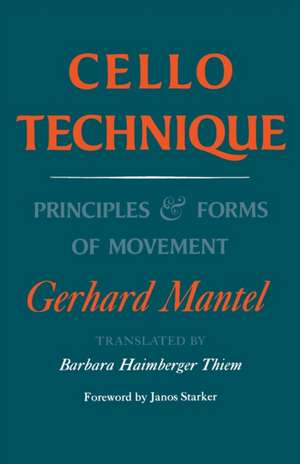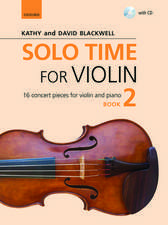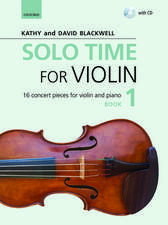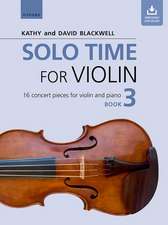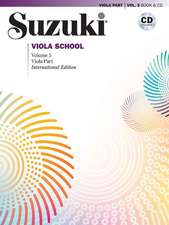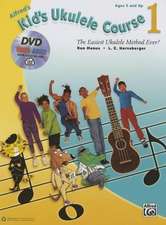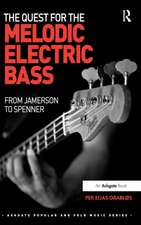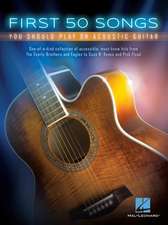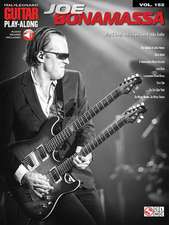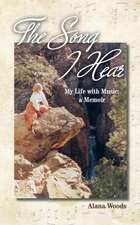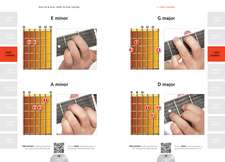Cello Technique – Principles and Forms of Movement (Paper only)
Autor Gerhard Mantel, Musikverlage Ha Musikverlage Haen Limba Engleză Paperback – 21 aug 1995
Librarul mai recomandă
Preț: 183.23 lei
Nou
Puncte Express: 275
Preț estimativ în valută:
35.07€ • 35.91$ • 29.17£
35.07€ • 35.91$ • 29.17£
Carte tipărită la comandă
Livrare economică 19 martie-02 aprilie
Preluare comenzi: 021 569.72.76
Specificații
ISBN-13: 9780253210050
ISBN-10: 0253210054
Pagini: 256
Dimensiuni: 138 x 210 x 14 mm
Greutate: 0.33 kg
Ediția:Paperback.
Editura: MH – Indiana University Press
ISBN-10: 0253210054
Pagini: 256
Dimensiuni: 138 x 210 x 14 mm
Greutate: 0.33 kg
Ediția:Paperback.
Editura: MH – Indiana University Press
Cuprins
Foreword by Janos Starker
Translator's Note
Introduction
Part One: Goal-Directed Movement
I. On Controlling Movement
General Issues
Goal Conception
Control of Movement
II. The Physics of Movement
Energy and Mass
Equilibrium
Energy Reserve and Looseness
III. Movement As Gestalt
Movement in Space
Movement in Time
Part Two: The Fingerboard
IV. Position Change
Total Body Movement during Position Change
Rotation of the Body and the Leg Muscles
Elasticity of the Body
Breathing and Position Change
Bow Direction and Position Change
Portamento and Rhythm
Movement of the Left Arm during Position Change
Movement of the Hand and Fingers during Position Change
Finger Activity during the Anticipatory Movement
V. Placement of Fingers, Hand, and Arm Within One Position
Hand and Position
The First Four Positions
The Transitional Positions (Fifth to Seventh)
The Thumb Positions
String Crossings and Double Stops
VI. Movement Within the Hand
Percussion
The Trill
Fluency
VII. Vibrato
Vibrato as a Means of Expression: Frequency and Amplitude
Vibrato Movement of the Arm
Application of Vibrato
Vibrato and Pitch Level
Part Three: The Bow
VIII. The Bowed String
How Is a Sound Produced on the String?
Change of Volume: Pressure, Speed, and Contact Point
Sound Colors
Speed, Pressure, and Contact Point in Their Practical Application
Problems of Sound Production: How to Make a String Speak
IX. Transmission of Pressure to the String
Arm Weight
Moment of Rotation (Rotational Force)
Pressure Relationships in the Bow Hand
Holding the Bow
Slanting the Instrument
X. Movement of the Right Arm
Upper Arm and Forearm in a Whole-Bow Stroke
Hand and Finger Movements during a Whole-Bow Stroke
Bow Change
String Change
Simultaneous Bow and String Change
XI. Different Kinds of Bowing
Détaché
Martellato
Staccato
Off-the-String Bowings
Conclusion
Bibliography
Translator's Note
Introduction
Part One: Goal-Directed Movement
I. On Controlling Movement
General Issues
Goal Conception
Control of Movement
II. The Physics of Movement
Energy and Mass
Equilibrium
Energy Reserve and Looseness
III. Movement As Gestalt
Movement in Space
Movement in Time
Part Two: The Fingerboard
IV. Position Change
Total Body Movement during Position Change
Rotation of the Body and the Leg Muscles
Elasticity of the Body
Breathing and Position Change
Bow Direction and Position Change
Portamento and Rhythm
Movement of the Left Arm during Position Change
Movement of the Hand and Fingers during Position Change
Finger Activity during the Anticipatory Movement
V. Placement of Fingers, Hand, and Arm Within One Position
Hand and Position
The First Four Positions
The Transitional Positions (Fifth to Seventh)
The Thumb Positions
String Crossings and Double Stops
VI. Movement Within the Hand
Percussion
The Trill
Fluency
VII. Vibrato
Vibrato as a Means of Expression: Frequency and Amplitude
Vibrato Movement of the Arm
Application of Vibrato
Vibrato and Pitch Level
Part Three: The Bow
VIII. The Bowed String
How Is a Sound Produced on the String?
Change of Volume: Pressure, Speed, and Contact Point
Sound Colors
Speed, Pressure, and Contact Point in Their Practical Application
Problems of Sound Production: How to Make a String Speak
IX. Transmission of Pressure to the String
Arm Weight
Moment of Rotation (Rotational Force)
Pressure Relationships in the Bow Hand
Holding the Bow
Slanting the Instrument
X. Movement of the Right Arm
Upper Arm and Forearm in a Whole-Bow Stroke
Hand and Finger Movements during a Whole-Bow Stroke
Bow Change
String Change
Simultaneous Bow and String Change
XI. Different Kinds of Bowing
Détaché
Martellato
Staccato
Off-the-String Bowings
Conclusion
Bibliography
Notă biografică
GERHARD MANTEL is Professor at the Staatliche Hochschule für Müsik, Frankfurt, and a noted concert artist. BARBARA HAIMBERGER THIEM teaches cello and is artist-in-residence at Colorado State University.
